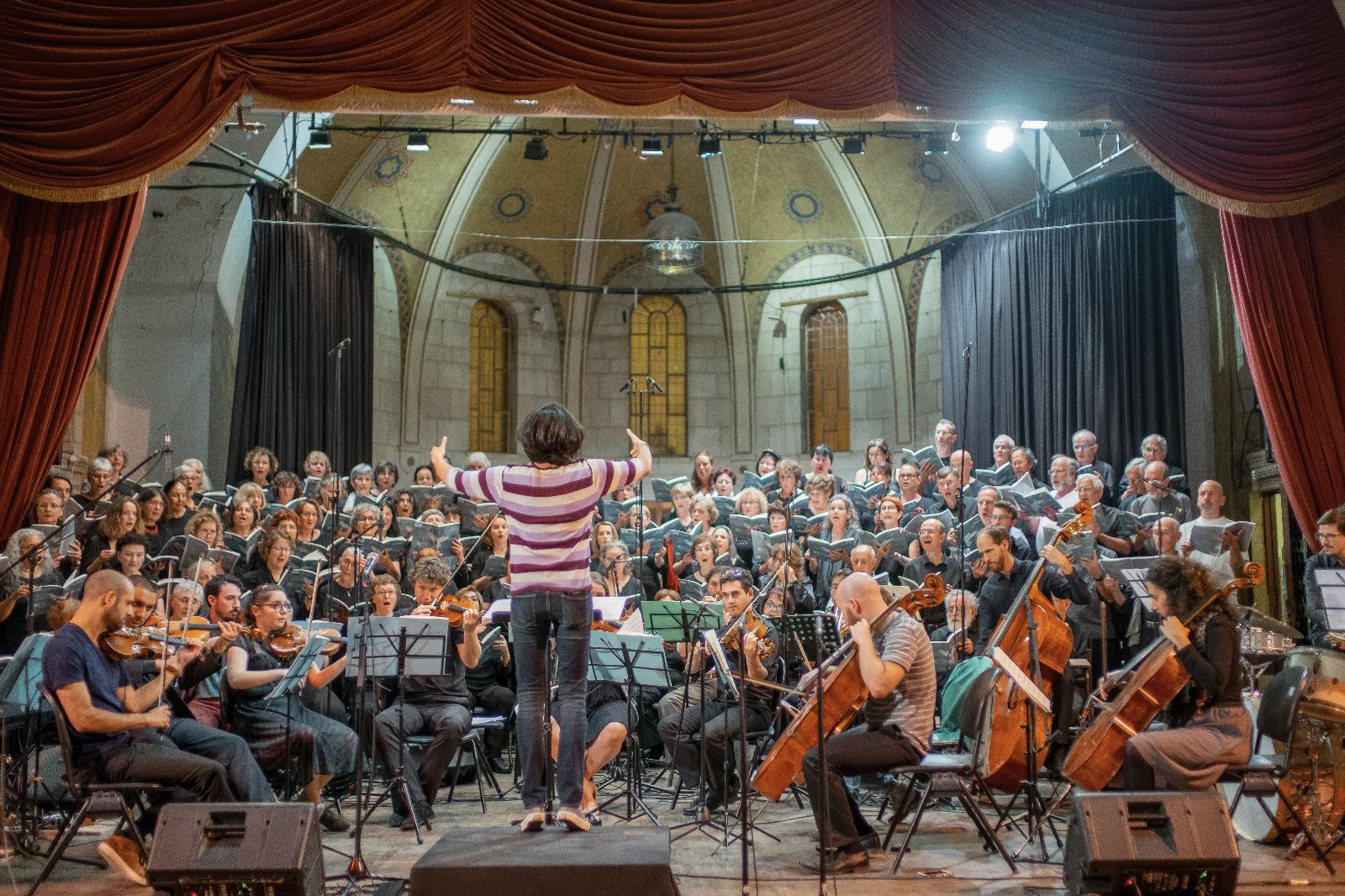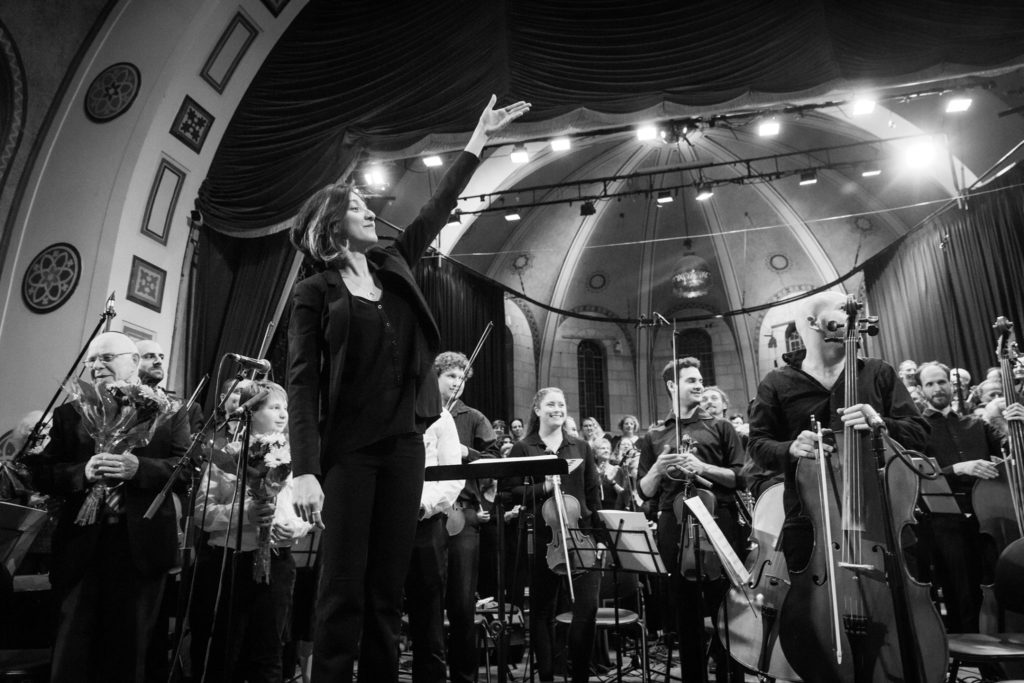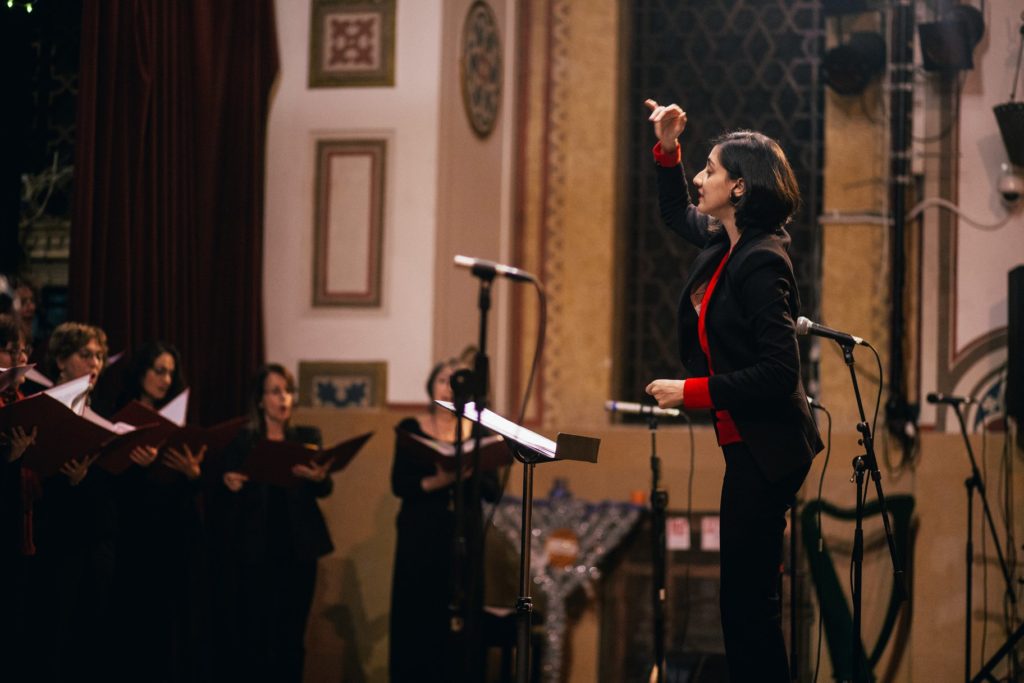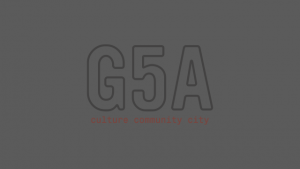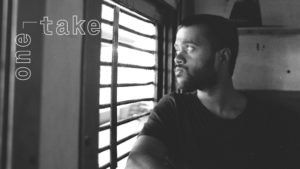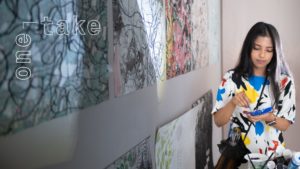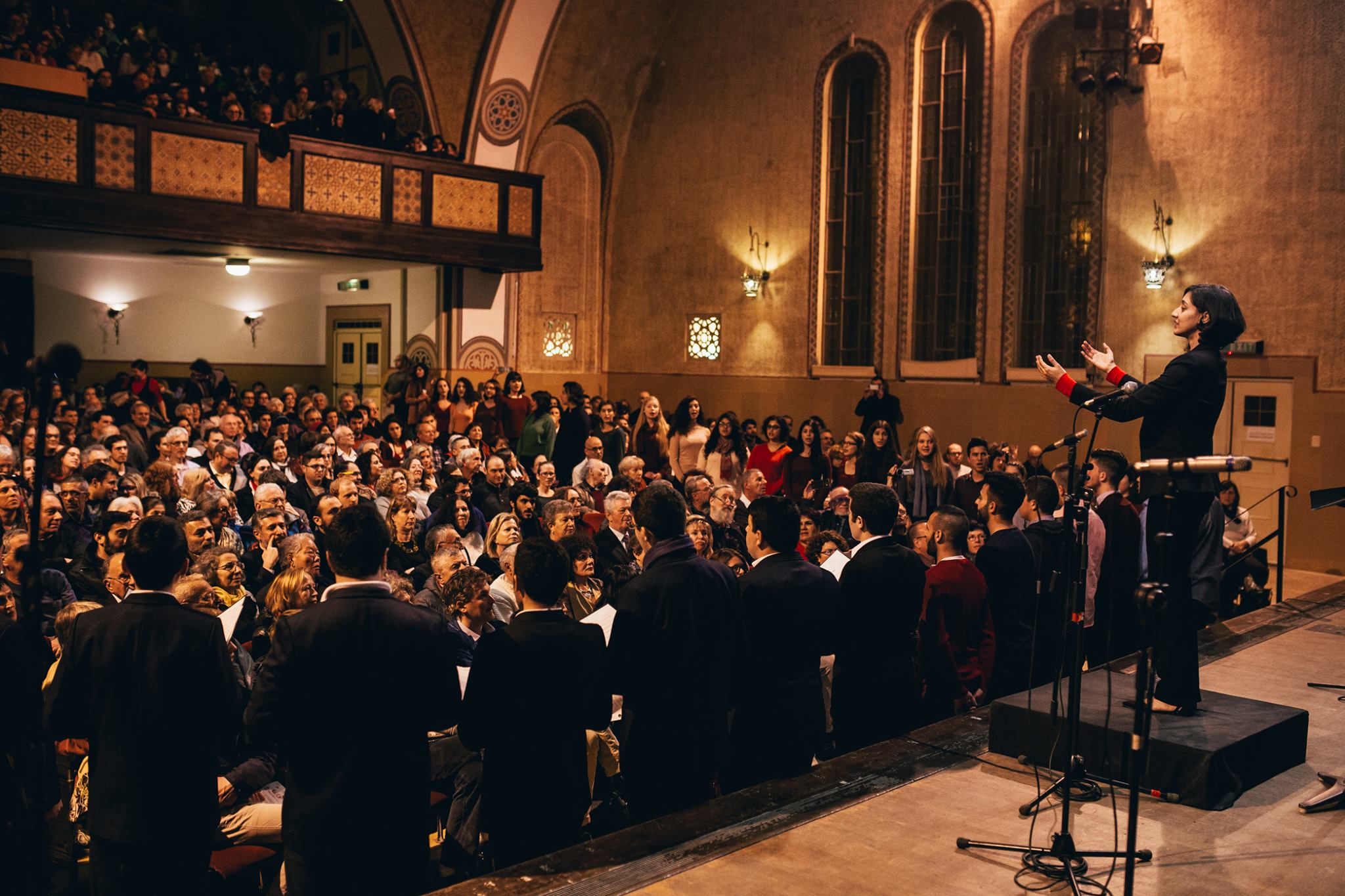
What question do you keep coming back to in your arts practice?
“The question I keep coming back to the most is “Whom is this for?”. This question constantly has me shuffling between forces: “It is for – the audience / the performers / myself / an education process / the art itself / the good of a community / for history or posterity”. Knowing which of these may have priority in any particular project impacts my decision-making for the process, the work itself and eventual outcomes. It also helps motivate or inspire as a conductor or musical director. Finding ways where the work is meant for more than just one or two of these forces combined – where audience, performer, conductor and community together feel some sort of impact, whether large or small – is always a dream.”
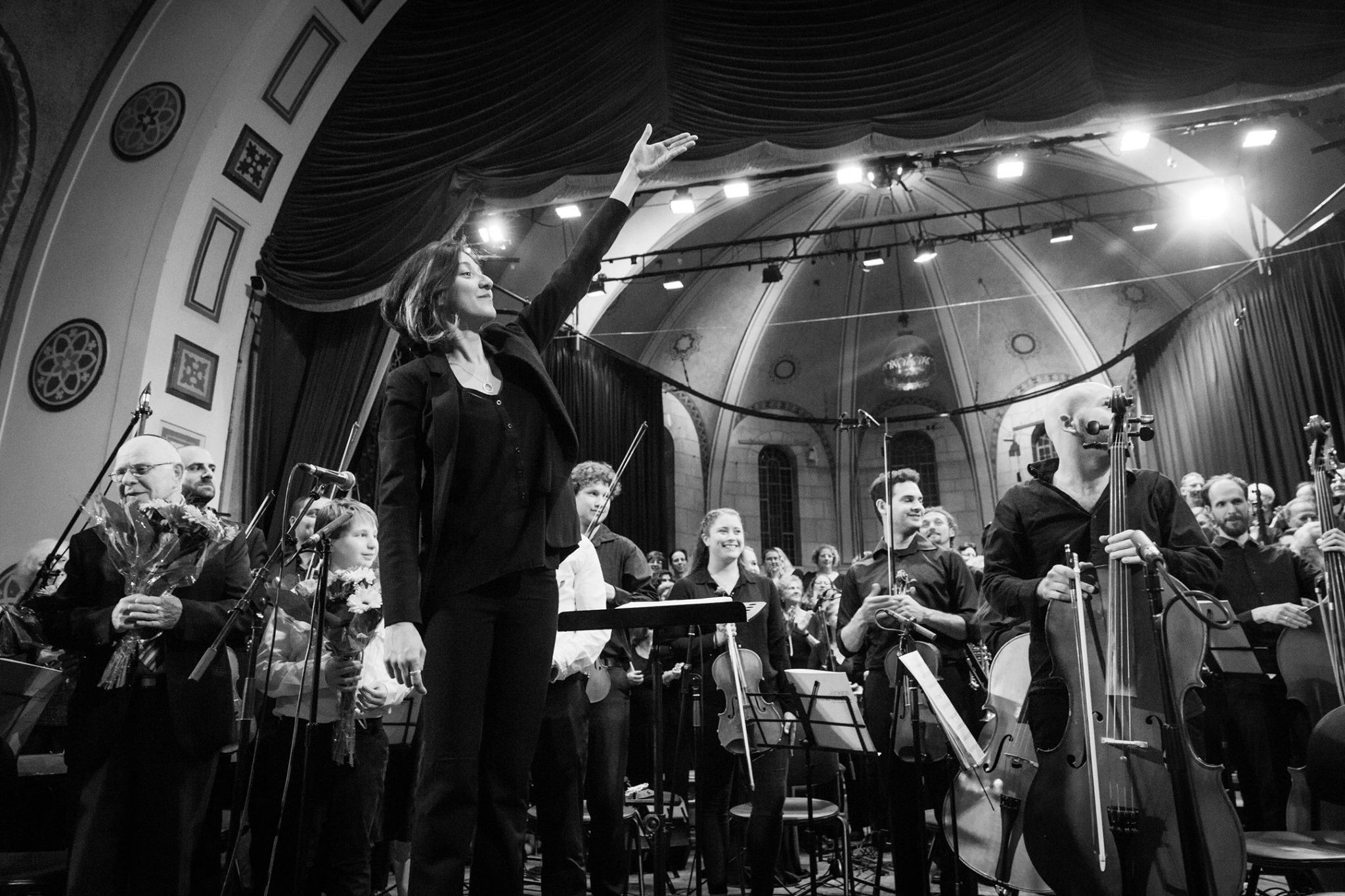
How does your arts practice allow you to respond creatively to conflict/crisis around you?
“It allows me to do so in 2 ways – Firstly, through mindful or specific programming of repertoire. Secondly, through organising collaborations for performance with targeted groups. A large part of the joy of choral music is the social aspect – Singing or playing music together often can bring people in ways inexplicable. This especially helps us build bridges across communities, get to learn about a crisis or conflict up close if we haven’t experienced it directly, show solidarity, and help voice the cause.”
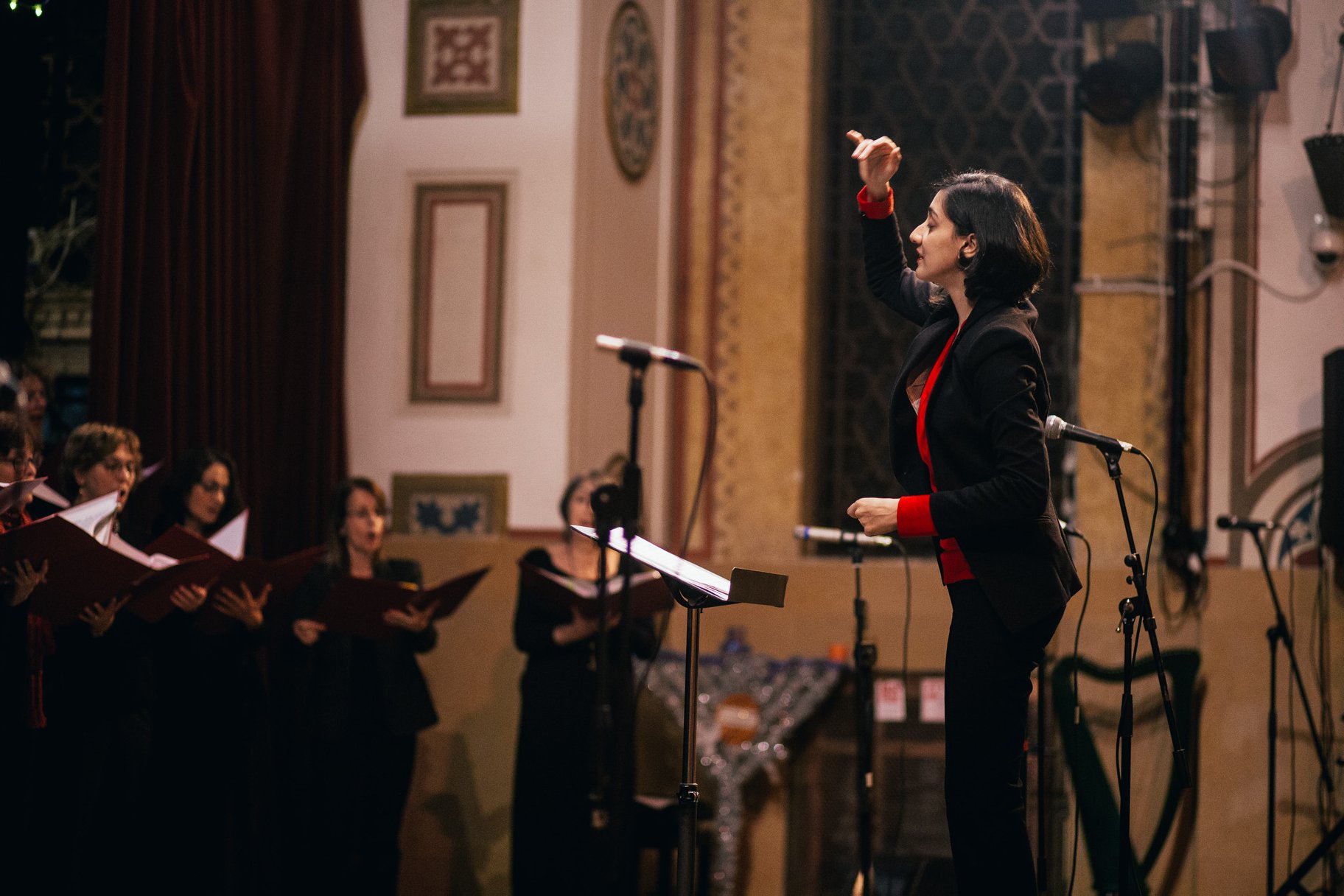
What do you enjoy most about the process of creating new work and what recurring challenges do you encounter?
“The things I enjoy the most have got to do with the art form itself. There is nothing more I love than walking into a room full of people who are willing to sit down and sing in harmony with each other – it moves me every single time. Another joy is watching the musical progress and evolution from start to end – Sometimes this process may take months and other times it may be just a few hours of work, depending on the group. As a conductor, I find that one can influence the energy of the group while working, and this is always a very intriguing aspect. It is both an enjoyment and a challenge for a conductor to lead a group through inspiration rather than pure authority. Challenges are always other technicalities – finding suitable repertoire for the group in question, musical literacy issues like reading sheet music, taking care of the singers vocal health, keeping up motivation in long-form process over months, and of course – budgeting!”
